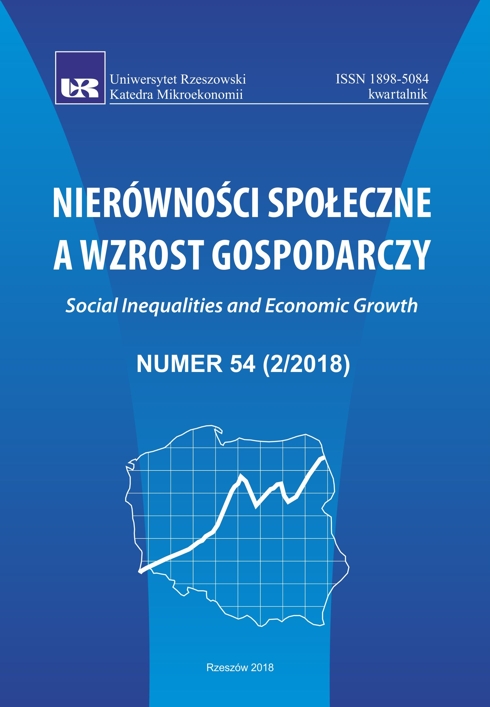Godziwa płaca minimalna jako determinanta
zintegrowanego rozwoju2
Fair remuneration as a determinant of integrated development
Author(s): Barbara OliwkiewiczSubject(s): Economy
Published by: Wydawnictwo Uniwersytetu Rzeszowskiego
Keywords: minimum wage; human capital; fair remuneration
Summary/Abstract: The aim of this study is to present and attempt to estimate the minimum equitable remunerationon each level of education in Poland as one of the determinates of integrated development. Inthe essence of integrated development, economic situation of an individual is as significant as theirenvironment: political, legal, institutional, social and cultural. A fair minimum wage protects humancapital from dispersion, rebalances its losses due to the essence of life, and enables the reconstructionof human capital. A man gathers and increases his personal capital throughout his life. The principlesof paying human capital are determined by the nature of capital. Capital is not created out of nothingand has its sources, which allow it to be valued in monetary units. The value of human capital consistsof capitalized living costs and capitalized costs of professional education for people with higher education.Capital located in the human being is reduced by illness, accidents, unemployment, wars andother incidents. The employee’s human capital also disperses as a result of work-related effort, and alsodue to the passing time. Remuneration is the compensation for this loss. The amount of remunerationshould be derived from the application of economic constant of potential growth (SEPW). Empiricalstudies confirm that this constant is around 8% per year. When the level of capital payment falls below8%, the value of human capital of employees will decrease. This is a phenomenon that is perceivedby the employed, it creates a sense of injustice, which then causes social tensions and dissatisfaction,which adversely affects the development of the entire country. Using the theory of human capital, it ispossible to estimate fair remuneration on different levels of education and at different times of work,as evidenced by this study.
Journal: Nierówności Społeczne a Wzrost Gospodarczy
- Issue Year: 2018
- Issue No: 54
- Page Range: 365-376
- Page Count: 12
- Language: Polish

